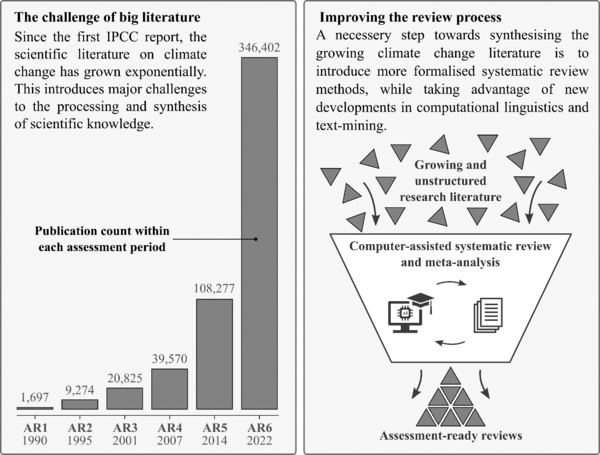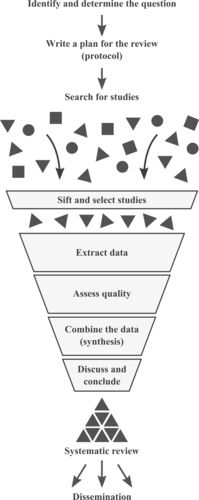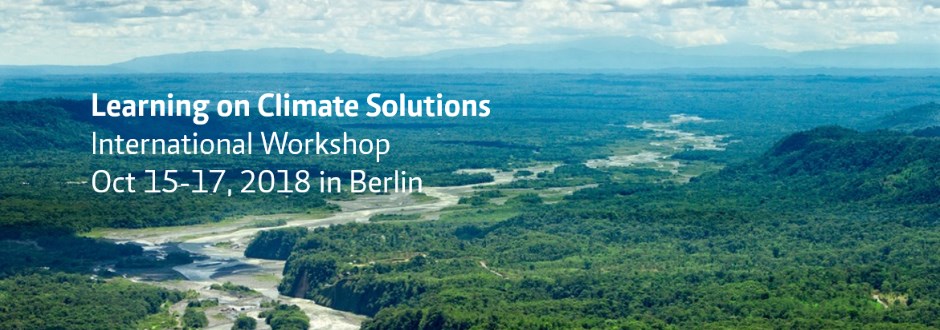Workshop: Learning on climate solutions
Knowledge synthesis in the social sciences for climate change assessments
>> What are systematic reviews
With the establishment of the Paris Agreement on climate change the world has entered a new era of climate solutions. Political battlegrounds have shifted from debates around the existence and relevance of anthropogenic climate change to how to solve the problem. Yet, our scientific understanding of solutions remains patchy. While climate change assessments as undertaken by the Intergovernmental Panel on Climate Change (IPCC) have been successful in understanding the physical science basis of anthropogenic climate change, learning on climate solutions has remained limited over the last three decades. We still do not really know what climate policies work well under what conditions and why (Minx et al 2017, Berrang-Ford et al 2015) nor how to track progress over time and across contexts (Ford et al 2015, Lesnikowski et al 2016).
This is caused by the different structure, organization and scientific practices across the social sciences and humanities that prohibit systematic learning (Ringquist 2013). Above all, there is a lack of a synthetic research culture understood as formal research on research results, including meta-analyses and systematic reviews. Consequently, research results are not accumulated into discrete bodies of knowledge. IPCC authors are confronted with scattered evidence across publications and fields. In fact, for AR6 we expect at least about 300,000 new publications only in the peer-reviewed literature covered by the Web of Science (Minx et al 2017, Minx 2018). In the absence synthetic evidence on mitigation and adaptation options they lack adequate building blocks for their assessment and systematic learning over time. Performing systematic review work is also crucial in times of big literature where the body of scientific publications on climate change is vast and fast growing as selection bias in scientific assessment becomes a growing concern (Sutherland and Wordley 2018, Donnelly 2018, Minx 2018, Haddaway and Macura 201

Aim & scope
- Review and discuss problems with knowledge accumulation in mitigation and adaptation research;
- Review and discuss experiences with the use of formal research synthesis methods for social learning and knowledge accumulation in other fields such as health sciences;
- Identify key topics in mitigation and adaptation research, where synthetic evidence would be particularly required for AR6;
- Create teams of people for systematic reviews on key topics and publish results in peer-reviewed journals;
- Provide conceptual and practical training to researchers to prepare them to conduct high-quality systematic reviews. Familiarize them with available IT resources.
What are systematic reviews?

“Systematic review” refers to a whole suite of formal methods to aggregate evidence into discrete bodies of knowledge by reconciling evidence and understanding sources of variation in a rigorous way.
Guided by the principles of reproducibility and transparency, they include formal quantitative methods for aggregating statistical and experimental research (such as meta-analysis), methods to review qualitative theory and evidence (such as meta-ethnographies), as well as methods to compile mixed quantitative and qualitative evidence (such as realist reviews). Yet, all approaches share the feature that they follow a clear methodological protocol involving the following steps:
1) clearly defining the research question; 2) systematically searching defined literature databases for a defined time period; 3) justifying and making transparent sources and selection of the literature; 4) systematically assessing the quality of the selected evidence; 5) justifying and making transparent methods used to synthesize the evidence based; and 6) appraising confidence in the results (Berrang-Ford et al 2015).
Abstract submission
In order to be considered for the limited number of places in this workshop, all interested research should submit a short project summary that outlines the proposed systematic review. Please use this template. The deadline for submission is September 30, 2018. Submitted proposals will be presented and discussed during the workshop. Proposed systematic reviews should focus on key topic areas from the AR6 outlines of IPCC Working Group 2 and Working Group 3 including:
- Energy demand reductions and lifestyle change
- Climate and non-climate policies at different scales and their political economy
- Innovation and technological breakthroughs
- Long-lived infrastructures and committed carbon
- Climate finance
- Tracking adaptation and mitigation progress
References
Berrang-Ford L, Pearce T and Ford J D 2015 Systematic review approaches for climate change adaptation research Reg. Environ. Chang.
Donnelly C A 2018 Four principles for synthesizing evidence Nature 558 361–4
Ford J D, Berrang-Ford L, Biesbroek R, Araos M, Austin S E and Lesnikowski A 2015 Adaptation tracking for a post-2015 climate agreement Nat. Clim. Chang.
Haddaway N R and Macura B 2018 The role of reporting standards in producing robust literature reviews Nat. Clim. Chang.
Lesnikowski A, Ford J, Biesbroek R, Berrang-Ford L and Heymann S J 2016 National-level progress on adaptation Nat. Clim. Chang.
Minx J C 2018 How can climate policy stay on top of a growing mountain of data? | Science | The Guardian Guard.
Minx J C J C, Callaghan M, Lamb W F W F, Garard J and Edenhofer O 2017 Learning about climate change solutions in the IPCC and beyond Environ. Sci. Policy77 252–9
Ringquist E 2013 Meta-Analysis for Public Management and Policy (John Wiley & Sons Inc.)
Sutherland W J and Wordley C F R 2018 A fresh approach to evidence synthesis Nature 558 364–5





